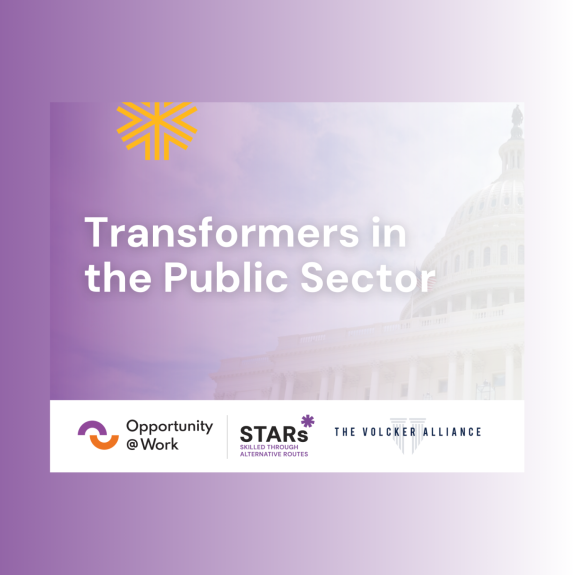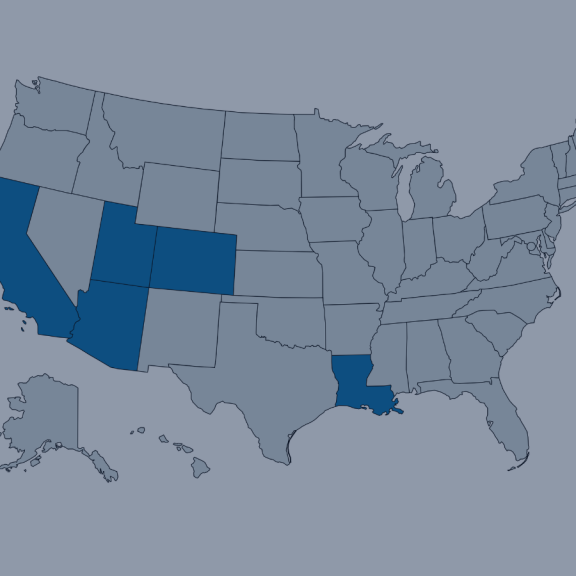Transformers in the Public Sector
Transformers in the Public Sector
The Volcker Alliance is partnering with Opportunity@Work and five states to drive the implementation of skills-first practices in the public sector. Through this collaboration, state governments will fill critical hiring needs and expand opportunities so more Americans can serve.

In recent years, more than 20 state governments have adopted skills-based hiring practices, removing degree requirements from public sector job descriptions. These efforts have unlocked over 550,000 public sector roles for individuals Skilled Through Alternative Routes (STARs), rather than a bachelor’s degree. While STARs represent half of the U.S. workforce, they occupy just 36% of state jobs even as governments have struggled to hire. This disparity equates to 1 million jobs that could be filled by skilled workers if hiring practices were more inclusive.
Opportunity@Work is partnering with the Volcker Alliance to launch a first-of-its-kind initiative to help state governments break down recruiting barriers for STARs and meet their talent needs. The Transformers in the Public Sector initiative is helping Arizona, California, Colorado, Louisiana, and Utah advance skills-first practices across two primary strategies:
STAR Hiring: States will identify roles across diverse fields—such as human resources, information technology, and tax administration—that align well with STARs’ skill sets. Efforts will include supporting HR teams and hiring managers in assessing candidates based on demonstrated skills.
STAR Advancement: States will work to implement practices that facilitate career progression for STARs. This includes evaluating the current employment landscape for STARs within state agencies and identifying barriers to retention and advancement.
Participants in the initiative are gaining valuable resources and technical assistance, including:
Exclusive workforce data analysis;
Support for crafting compelling narratives that bolster the skills-first movement;
Expert guidance and technical assistance to implement and sustain skills-based talent practices in the public sector context.
Through these resources, state teams will be empowered to adopt best practices, foster economic mobility, and share innovative solutions with peers addressing similar workforce challenges.
